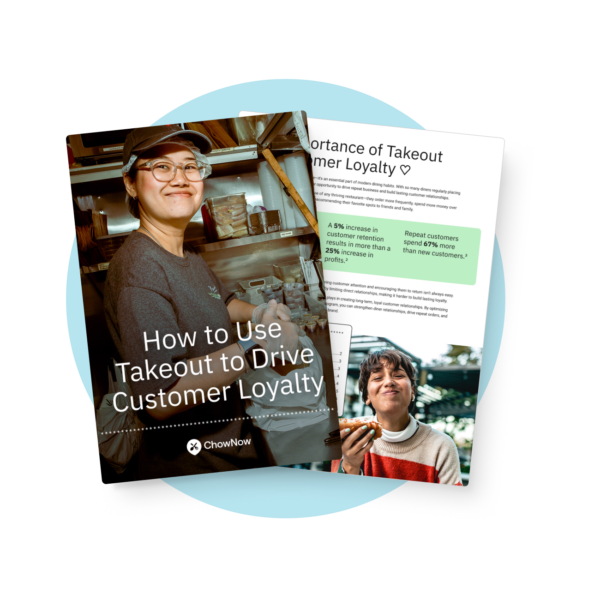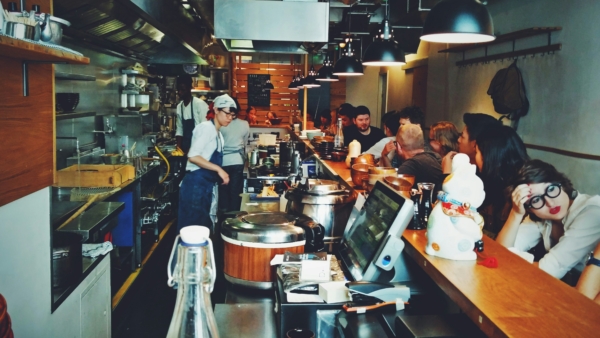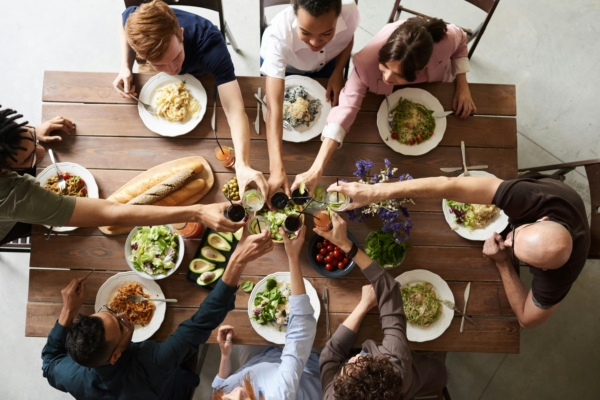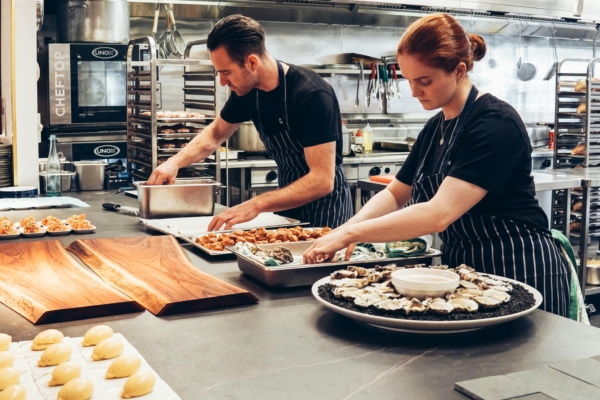Restaurant Roundtable: Business Lessons from the Pandemic
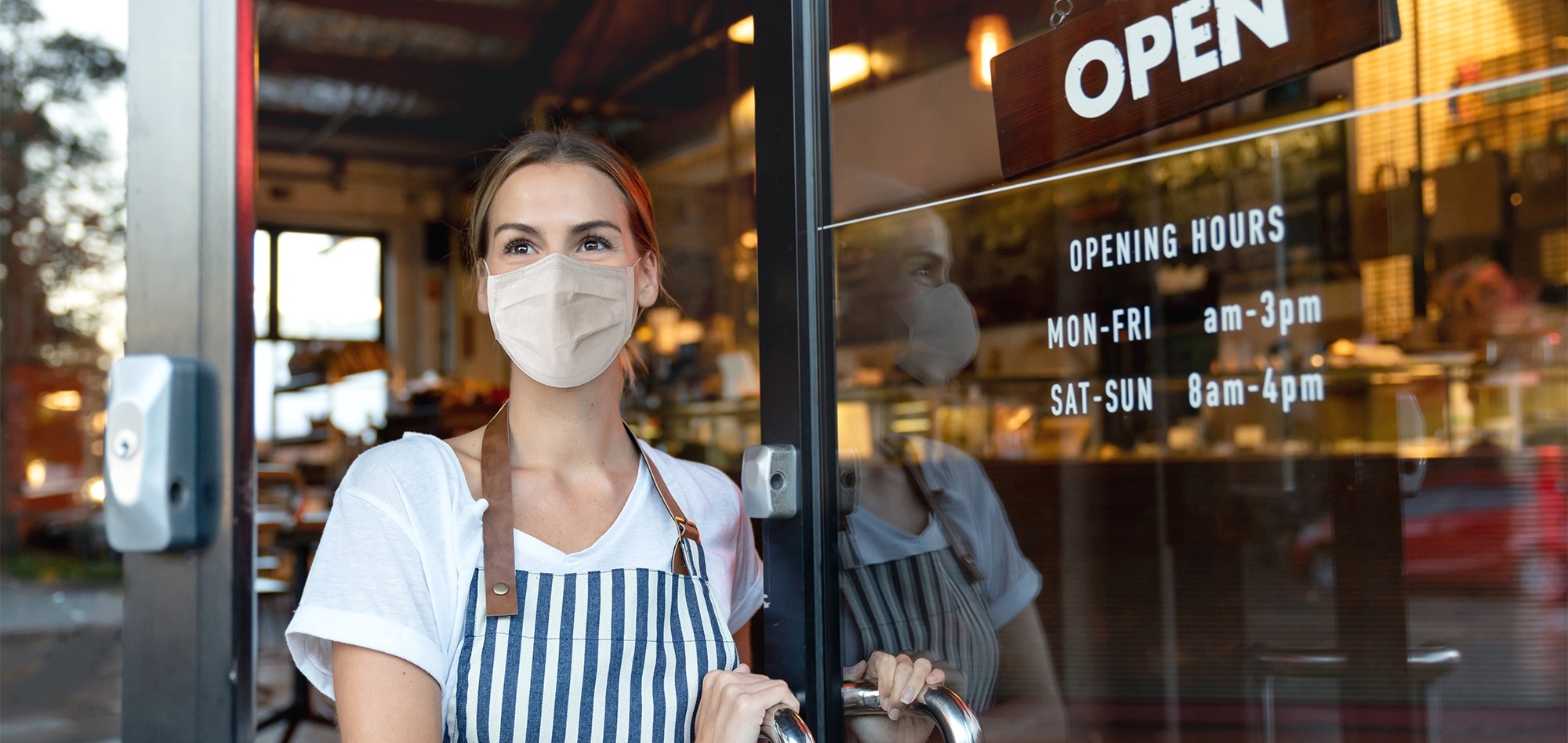
The COVID-19 pandemic has been a devastating experience for the restaurant industry, which has lost an estimated $200 billion within the first seven months of the crisis. Even in these dire circumstances, operators and staff alike have been remarkably resilient. ChowNow’s Restaurant Success Team has witnessed and guided our clients through the twists and turns of the past year. We spoke to Ali Mochizuki, Emily Plotkin, Shadeh Tabatabai, and Larissa Lynn—all seasoned ChowNow Restaurant Success Managers—to hear their business lessons from the pandemic and advice for restaurants.
This interview has been condensed and edited.
At the beginning of the pandemic, what types of conversations did you have with your clients?
Emily Plotkin: Normally, when we have conversations with our clients, whether they’ve just started with us or have been a partner of ours for years, we always speak about online ordering as a certain aspect of their business. But all of a sudden, it became their entire business. Our partners looked to us not only to help with online ordering, but also to comfort them and be there to listen to them during this time.
Ali Mochizuki: The first three months were the toughest. Everyone at ChowNow was working day and night to support our restaurant partners. As the experts in the online ordering industry, we needed to guide our clients through this uncertain time, believing in our skills and our ability to help them. The entire company was so ready to dive head-first and do everything in our power to make this work for them.
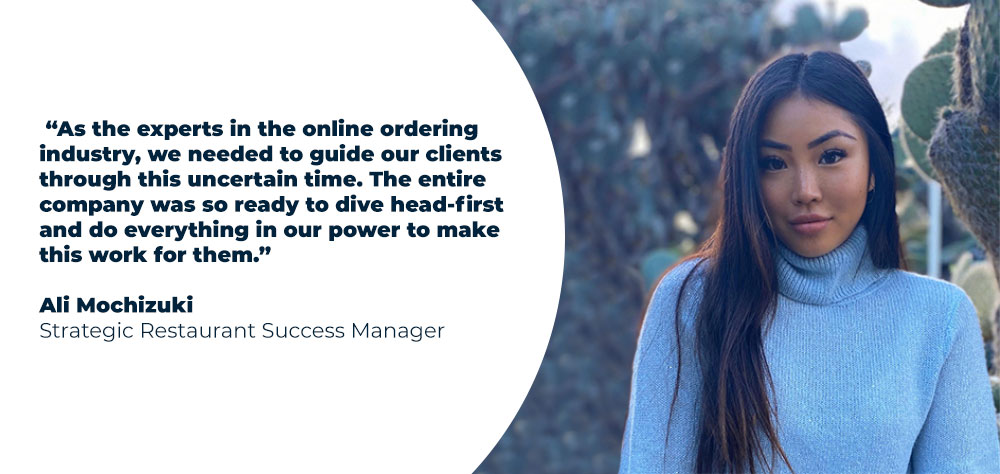
What was your advice for restaurants early on in this crisis?
Emily Plotkin: I advised my clients to over-communicate with their own customers. They sent out emails and posted on social media to communicate three essential messages: One, that they were open and potentially had modified hours, procedures, and other operational changes; two, to tell their guests that they could use some help in overcoming financial and health obstacles; and three, that they empathized with their guests and were ready to feed them safely.
Shadeh Tabatabai: I reminded my clients that everybody wants to support small local restaurants right now. Menu items to collect donations or extra tips for staff have been very common. I would also recommend putting groceries and household necessities on menus. I had so many partners that put toilet paper on their menus. It was ridiculous. And it worked!
Larissa Lynn: Speaking of creative menu ideas, I was working with a higher-end client who wanted to increase their alcohol sales. They ended up hosting virtual wine tasting classes. They created add-on items for wine pairings, so they could suggest the best wine for a particular dish. It was a great way to pull people in a little bit more.
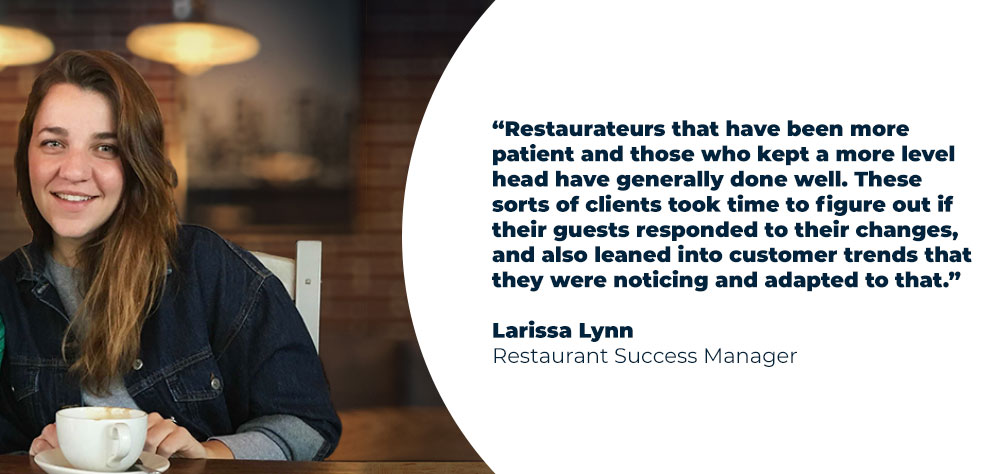
What are the most successful restaurants doing right now? What business lessons have they learned from the pandemic?
Larissa Lynn: Restaurateurs that have been more patient and kept a more level head have generally done well. These sorts of clients took time to figure out if their guests responded to their changes, and leaned into customer trends that they were noticing. For example, I have a client that’s just doing curbside now and not even letting people in the door. That’s a safety precaution, but also it’s because his customers just weren’t coming in. He fully adapted to this trend because it helped him operationally.
Ali Mochizuki: They’re flexible and adaptable. For example, I had a client who wanted to drive weekday orders by capitalizing on mobile app downloads. He ended up running a very specific promotion for mobile app users, but it wasn’t successful. I went over the numbers with him, and I explained my thoughts on why it didn’t work. We then refocused on the main goal of increasing orders during the weekday. Now, he’s going to do an entirely new promotion.
It doesn’t mean that marketing doesn’t work. It just means that we need to try something else that might be better for his brand. Successful restaurants understand that marketing is not one-and-done. It’s a consistent process that sometimes takes time to get going, and it’s not always going to work the first time around.
Emily Plotkin: Also, during this time, people have gravitated towards empathy and certain restaurants have tapped into that. On social media, successful restaurants have featured the people who help make it all happen—the kitchen staff, dishwashers, even members of their families. This lets guests connect on a more personal level, and then they are more apt to help.
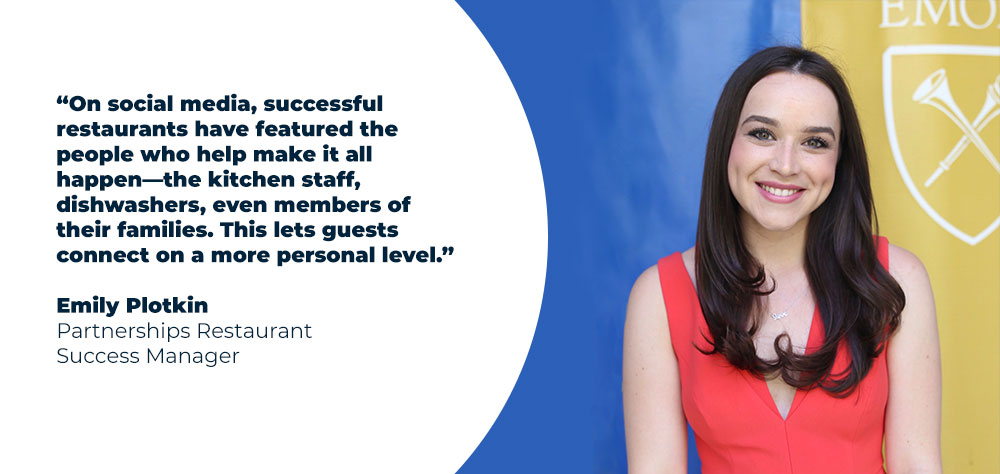
As the pandemic has gone on, what new challenges are coming up for your clients?
Shadeh Tabatabai: At first, there was a lot of uncertainty. Now everyone’s accepting this new way of living for however long. All of my clients are learning what they need to do from a marketing standpoint and how to make customers comfortable.
Emily Plotkin: The focus is going to change when more restaurants reopen for dine-in, which they’re eager to do for the most part to increase business. How can we encourage curbside and regular pickup at the same time? People are starting to go back to their favorite restaurants for an experience of eating out. I definitely think there is still a demand for takeout from guests that want to stay extra-cautious and extra-safe. But it’ll be interesting to watch the numbers and adapt to that too.
When we look towards the end of the year and the start of 2021, what should restaurants prioritize?
Ali Mochizuki: They should prioritize contactless payment and contactless ordering. Restaurants shouldn’t stop using online ordering just because dine-in may be picking back up. A lot of restaurants will be keeping it for good because they now understand how powerful it is. For example, J Alexander’s didn’t have online ordering before. They launched on ChowNow in April, and they were just so thankful. Now at this point, their sales have recovered to more than 90% of pre-COVID levels.
Shadeh Tabatabai: Restaurants need to engage with the loyal customers that are already ordering from them. That’s a much easier order to get, especially during the holidays when people don’t dine out or order out as much. It’s also important that they add some kind of twist to their menu that incorporates the holidays. It’s going to be a weird season for everyone in general, because so many people can’t come together to celebrate. Restaurants should try to tap into that and offer some comfort to their guests.
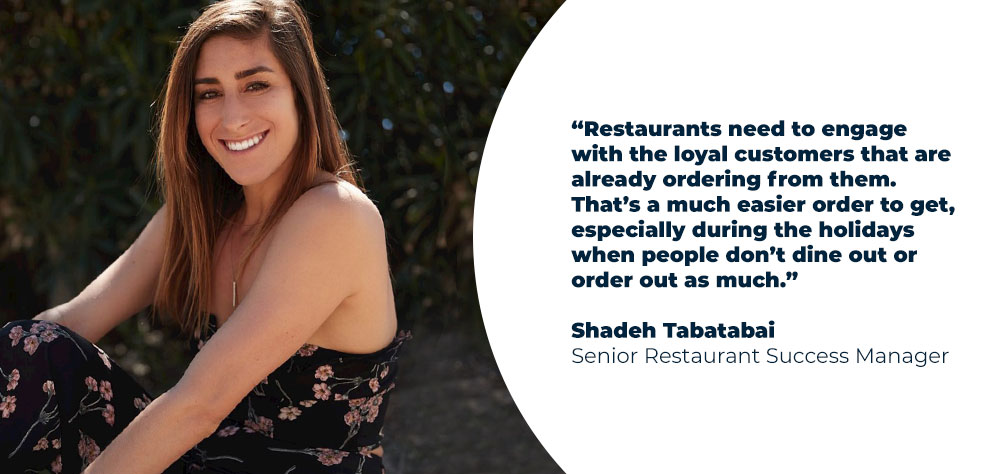
Get More Expert Advice for Restaurants
Every ChowNow restaurant partner is paired with their own Restaurant Success Manager, so they can make the most of their online ordering. If you’re not already a partner, schedule a demo to get started.
